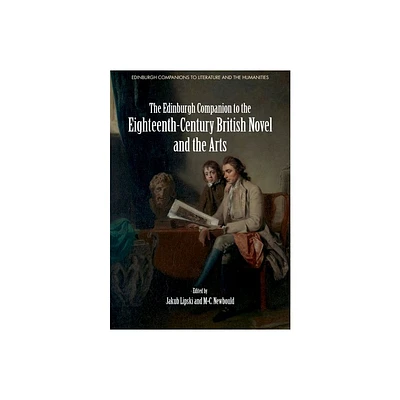Home
Imoinda's Shade: Marriage and the African Woman in Eighteenth-Century British Literature, 1759-1808
Loading Inventory...
Barnes and Noble
Imoinda's Shade: Marriage and the African Woman in Eighteenth-Century British Literature, 1759-1808
Current price: $35.95


Barnes and Noble
Imoinda's Shade: Marriage and the African Woman in Eighteenth-Century British Literature, 1759-1808
Current price: $35.95
Loading Inventory...
Size: OS
*Product Information may vary - to confirm product availability, pricing, and additional information please contact Barnes and Noble
As the eighteenth century is entirely bereft of narratives written by African women, one might assume that these women had little to no impact on British literature and the national psyche of the period. Yet these kinds of assumptions are belied by the influence of one prominent African woman featured in the period’s literary texts.
Imoinda’s Shade
examines the ways in which British writers utilize the most popular African female figure in eighteenth-century fiction and drama to foreground the African woman’s concerns and interests as well as those of a British nation grappling with the problems of slavery and abolition. Imoinda, the fictional phenomenon initially conceived by Aphra Behn and subsequently popularized by Thomas Southerne, has an influence that extends well beyond the
Oroonoko
novella and drama that established her as a formidable presence during the late Restoration period. This influence is palpably discerned in the characterizations of African women drawn up in novels and dramas written by late-eighteenth-century British writers. Through its examinations of the textual instances from 1759-1808 when Imoinda and her involvement in the
marriage plot are being transformed and embellished for politicized ends,
demonstrates how this period’s fictional African women were deliberately constructed by progressive eighteenth-century writers to popularize issues of rape, gynecological rebellion, and miscegenation. Moreover, it shows how these specific African female concerns influence British antislavery, abolitionist, and post-slavery discourse in heretofore unheralded, unusual, and sometimes radical ways.
Imoinda’s Shade
examines the ways in which British writers utilize the most popular African female figure in eighteenth-century fiction and drama to foreground the African woman’s concerns and interests as well as those of a British nation grappling with the problems of slavery and abolition. Imoinda, the fictional phenomenon initially conceived by Aphra Behn and subsequently popularized by Thomas Southerne, has an influence that extends well beyond the
Oroonoko
novella and drama that established her as a formidable presence during the late Restoration period. This influence is palpably discerned in the characterizations of African women drawn up in novels and dramas written by late-eighteenth-century British writers. Through its examinations of the textual instances from 1759-1808 when Imoinda and her involvement in the
marriage plot are being transformed and embellished for politicized ends,
demonstrates how this period’s fictional African women were deliberately constructed by progressive eighteenth-century writers to popularize issues of rape, gynecological rebellion, and miscegenation. Moreover, it shows how these specific African female concerns influence British antislavery, abolitionist, and post-slavery discourse in heretofore unheralded, unusual, and sometimes radical ways.


















